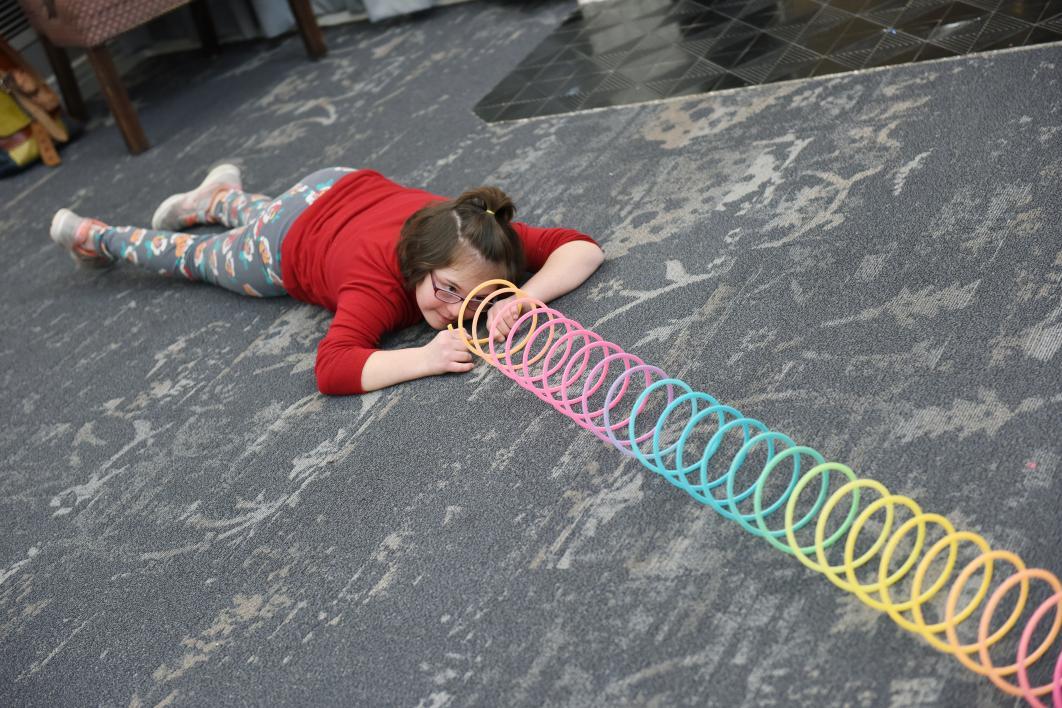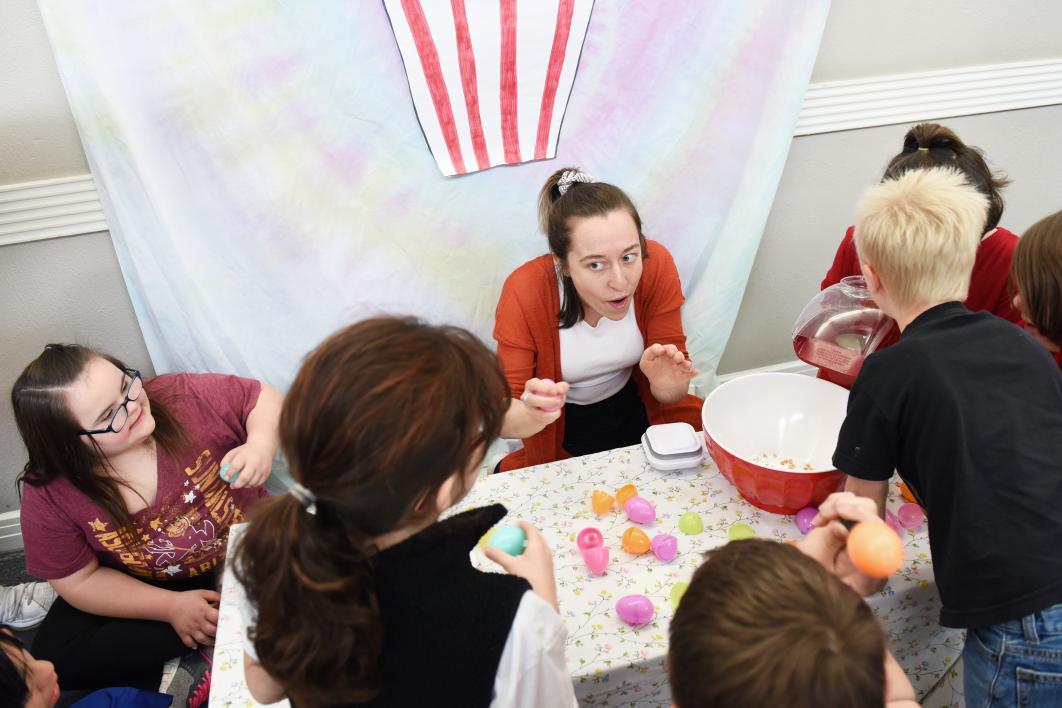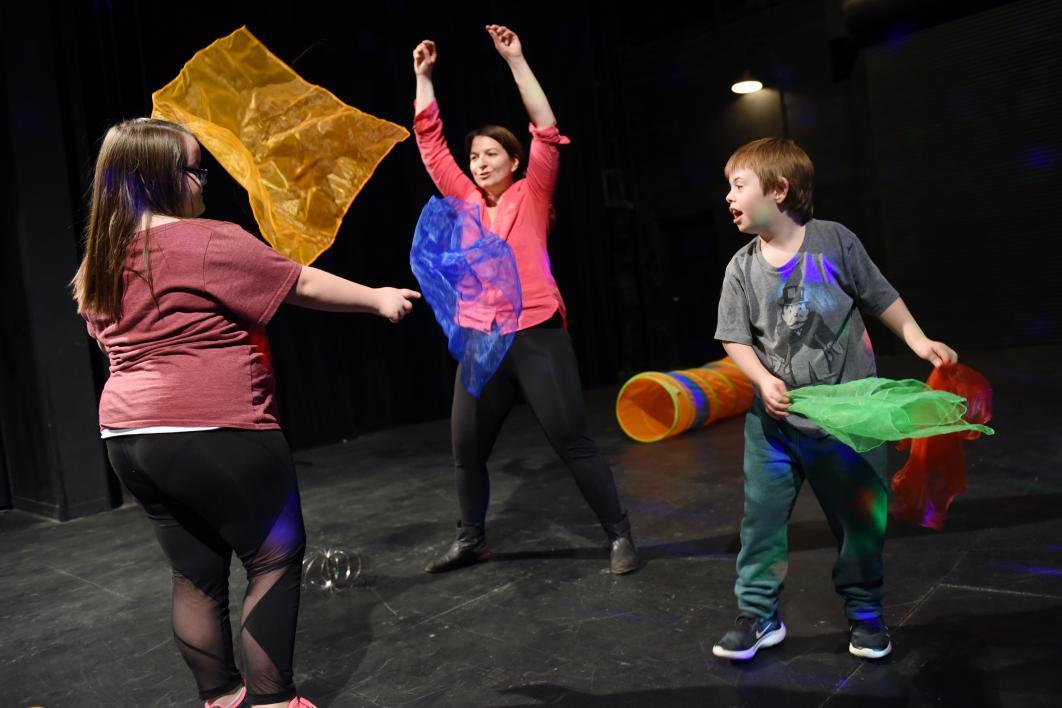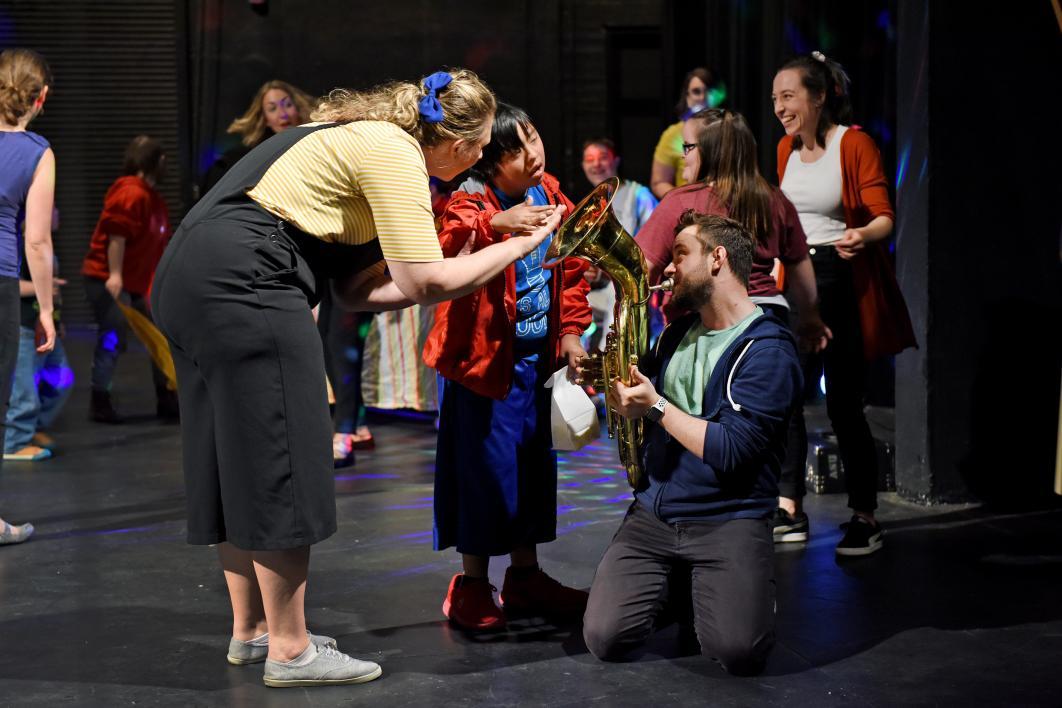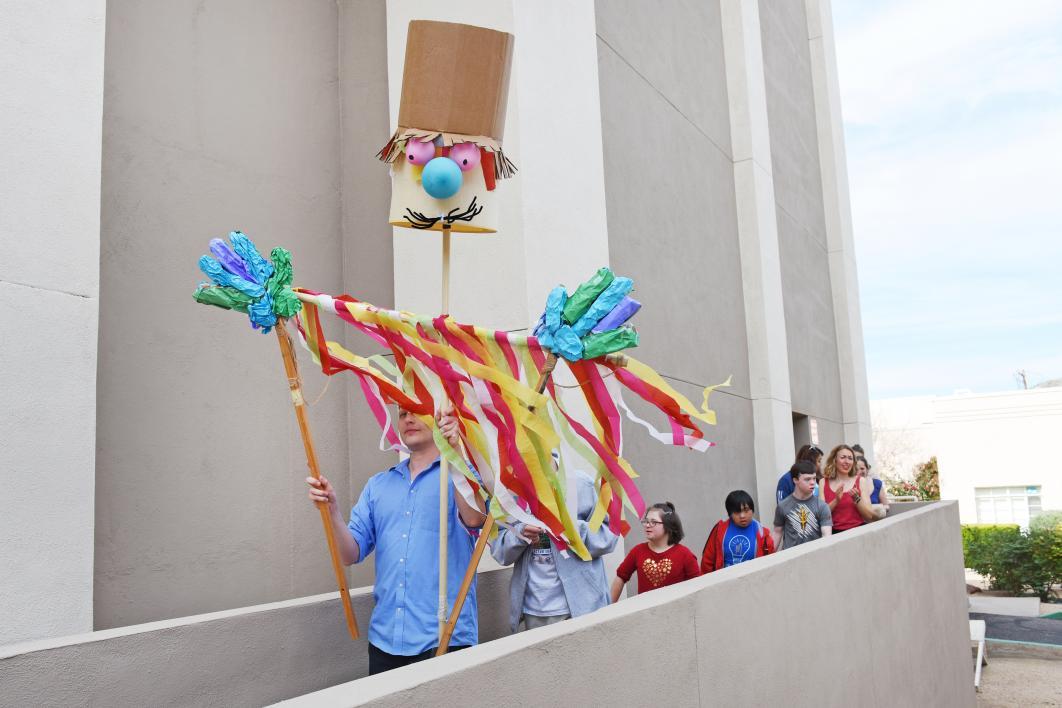Renowned theater artist visits ASU Theatre for Youth program
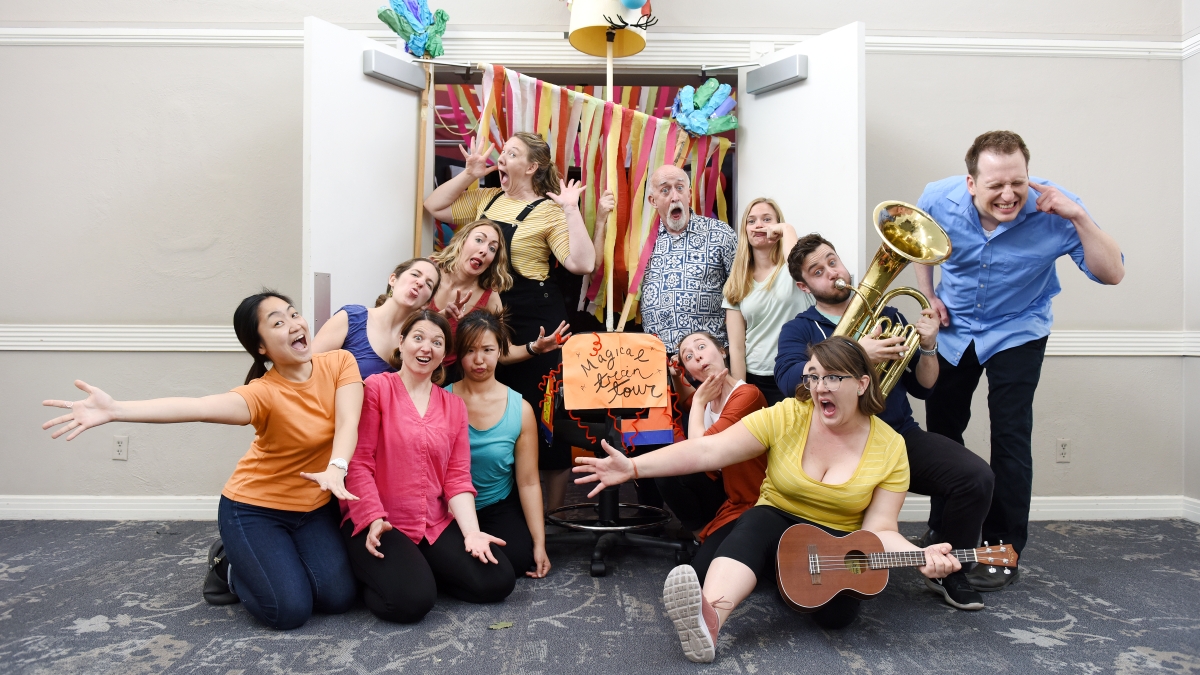
Tim Webb, an internationally renowned theater artist, visited ASU for a residency with the Theatre for Youth program in the School of Film, Dance and Theatre. Photo by Tim Trumble.
In 1988, a spaceship crash landed in a school playground in London. Tim Webb, an internationally renowned theater artist, was behind the crash — it was the setting for a multi-sensory, interactive theater production developed just for the students at the school for special education.
Webb, who visited Arizona State University last week for a residency with the Theatre for Youth program in the School of Film, Dance and Theatre, and Max Reinhardt were pushing boundaries in theater when they formed Oily Cart in 1981 to make interactive theater for 2 to 5-year-olds. A few years later, when they were asked to perform at that London special school for children who “were classified as having sensory, physical, intellectual and behavioral disabilities,” they were inspired to create something new.
“We realized that any show we did would have to be multi-sensory,” Webb said. “We couldn’t rely on those theater standbys of what could be seen and heard, and it would have to be interactive so that it could adapt to the many different personalities and abilities. It also needed to last longer than the average young people’s theater show so the young audience could take the time to get used to us performers and for us to get used them.”
They created a production that lasted the whole school day. When the young people arrived in school, they found the crashed spaceship. From the site emerged "three rather jolly aliens with long striped tails who most significantly, knew nothing of life on earth."
"They asked the audience why they were making black marks on white surface and found out this was called writing," Webb said. “Each young person in the school knew more about this world than the aliens, and I believe that many of them found the experience not just amusing but empowering.”
They were invited to perform in other schools around London, and since that show, Oily Cart has produced one new special education needs production each year.
Webb stepped down as artistic director of Oily Cart last year, but said, “I don’t think I’ve got the hang of this retirement business.”
Since then he has written and directed a show in Sweden for audiences who are defined as having Profound and Multiple Learning Disabilities (PMLD) or who are considered to be on the autism spectrum. It is touring in Scandinavia until 2021. He taught for three weeks in the U.S. He revived the Oily Cart show “Splish Splash,” which takes place in hydrotherapy pools and will tour in the United Kingdom through July. He has plans to travel to Sichuan, China, to help a theater there develop theater in children’s hospitals. And he just spent a week in residency at ASU. During his time here, he worked with ASU Theatre for Youth students to develop a production for young people with PMLD. Webb and the students performed the piece for a group of young people from Believe I Can Academy on Friday, March 15.
Webb also took some time to answer a few questions.
Question: What creative capacities do artists grow working with these audiences?
Anser: Observation, empathy, flexibility, creativity.
Q: During your residency here at ASU, what has it been like working with our Theatre for Youth students?
A: It's been great. They are an extraordinarily most-talented and hard-working bunch who are lovely to be around.
Q: What is something you have learned throughout your career that you want to share with theater artists just starting out?
A: That everything seems to take a little bit longer than you first thought possible. But stick at it. With sufficient time you can engage any audience.
Q: What is a question you wish people would ask you and how would you answer?
A: Why should more people create this work? Because you will be able to reach out to and engage people who because of their sensor, physical and cognitive impairment are often cut off from the people and the world around them and show them the wonders that surround them.
More Arts, humanities and education

School of Social Transformation faculty member assumes new title with NSF
School of Social Transformation faculty member and Founding Executive Director of the Center for Gender Equity in Science…

ASU's Neal Lester reflects on life, death of poet Nikki Giovanni
When Neal Lester heard on Monday that poet and activist Nikki Giovanni had died, the news hit hard.Lester, the founding director…

Learning by stepping outside
By Adriana MaestasAmid a world increasingly captivated by all things digital, more than 200 Arizona teachers have crafted…
